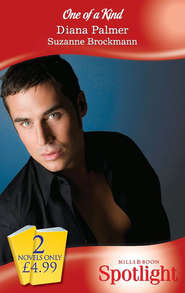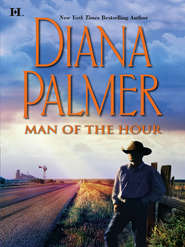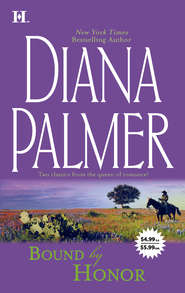По всем вопросам обращайтесь на: info@litportal.ru
(©) 2003-2024.
✖
Miss Greenhorn
Настройки чтения
Размер шрифта
Высота строк
Поля
Glad for an opportunity to really talk about her work, she said, “I’m searching for pieces of Hohokam pottery. We’ve mapped this area and we’re doing a pottery search.”
“I know that,” he said with forced patience. “What are you doing in Arizona?”
“I had a vacation and I like ruins.”
“There’s Rome,” he pointed out. “They have lots of ruins over there.”
“They’ve all been dug up,” she replied. “I wanted to go someplace where everything hasn’t already been discovered.”
“You might try the North Pole.” He frowned. “On second thought, don’t do it. There’s a theory about the calamity that would strike if it melted. With your background, who knows? You might trip over some forgotten thermonuclear device and blow it up.”
She glared at him. Anger gave her delicate features added beauty and color, and her green eyes blazed up. “I can’t help having the occasional accident!” she said angrily, wishing she could see him better. He was very tall and his face seemed far away.
He put his spotted Stetson back on his head and cocked it at an angle across his brow. “I’ll bet your insurance company has prayer every morning.”
“I don’t have an insurance company,” she managed under her breath.
“Why doesn’t that surprise me?” He tipped his hat and started to walk away.
“I’m really sorry about your hat and all,” she called after him.
“Lucky for me that it was a little creek instead of an old mine.” He stopped and turned, his expression very serious. “That reminds me, there are a few old mines around here, so for God’s sake stick to well-traveled areas. If you go down a shaft, you could disappear forever.”
She sighed. “Okay. I’ll stay where I’m told.”
“You’d better,” he said firmly and kept walking.
The thought of a mine shaft opening under her kept Christy nervous for the rest of the day. So far all they’d found had been little bits and pieces of pottery, mostly gray. But the fact that it was over a thousand years old made her giddy. Imagine holding something in her hand that a Hohokam potter had held in his or hers that many centuries ago! She held one shard up to her nose and drank in its earthy, dark scent with her eyes closed.
They were a very special race, the Hohokam. They’d had irrigation and a unique form of peaceful government here in southeastern Arizona about the same time people were hitting each other over the head with battle-axes in Europe. They had a religion which united and uplifted them, a society which was equal for rich and poor alike. They were a poetic people, with a reverent attitude toward the land and each other. From this ancient people, it was said, the Pima and the Papago (Tohono O’odham) tribes evolved.
“Exciting, isn’t it?” George asked, squatting down beside her as she laid the shard back down. “I’ve read everything I could find about the Hohokam. What a pity that their way of life had to vanish.”
“At least there are offshoots of it—the Pima and the Papago,” she reminded him. “The Anasazi left no trace of themselves as far as we know.”
He sighed. “I’ve dreamed all my life of coming here,” he remarked, his eyes lifting to the surrounding sharp, lifeless mountains and the blue sky. “Isn’t it clean? Like it might have been a thousand years ago.”
“They have pollution alerts in Phoenix these days,” she said, “and water and soil pollution are just as big a threat. Toxic waste and radioactive debris and chemical spills…”
George glowered at her. “You’re a real thrill to have around.”
“Sorry. I have a soapbox. I got hooked on conservation when I was just a little girl. I’ve never lost the fire. I think the Indians had the right idea—to live in harmony with nature. All we’ve managed to do is pollute it out of existence. We’ve destroyed the delicate balance of predator and prey that once sustained the whole planet. Now we’re trying to recreate it by synthetic means. I wish we’d left it alone.”
“If that had happened, you would be pounding maize to make cornmeal and chewing deerskin to make it soft enough for clothing. I would be hunting buffalo and dodging bullets trying to provide meat for somebody’s lodge.” He grinned. “In between there would be prairie fires, attack by enemy tribes, rattlesnakes, dust storms, floods and droughts and rabid animals—”
“Stop.” She held up her hand. “I agree wholeheartedly that there are two sides to every story.” She grinned back. “How about helping me organize these pottery shards?”
“There’s something we can agree on,” he said.
* * *
That night, Christy managed not to do anything remotely clumsy at dinner. She sat out on the patio watching the stars, munching a cookie while Hereford cattle grazed and lowed in a fenced pasture just a few yards from where she sat. The gauzy white Mexican dress she was wearing was cool and comfortable, and her long hair was blowing in the soft wind.
Footfalls behind her made her start. She knew almost without looking who was going to be there when she turned around.
“There’s a pool game going on and several people are playing bridge,” he said. “I saw a chess match and a checkers tournament. There are books in the library and a television and several new movies to watch.”
“Thank you, Mr. Lang, but I find this much more entertaining.”
“Waiting for George to show up?” he queried, pausing beside her chair.
“George is playing chess,” she informed him.
“And you aren’t going to cheer him on?” he asked with cheerful mockery. He lit a cigarette and straddled a chair across from her. He was wearing jeans and boots and a silky blue shirt that clung to the hard muscles of his arms.
She lowered her eyes shyly. “George is just a colleague.”
“Not quite what you expected when you signed on?” he probed. He lifted the cigarette to his lips. “Didn’t you come out here looking for adventure and romance? And what did you find? George.”
“George is intelligent and kind and very nice to talk to,” she faltered. “I like him.”
“He’s not likely to throw you over his saddle and carry you off into the hills,” he pointed out.
“Thank God,” she replied. Her fingers clenched the arms of her chair. Her heart was going crazy. Why wouldn’t he stop baiting her?
He turned his head and watched her, his eyes missing nothing as they ran down her body to her long, elegant legs peeking out from the skirt of the white dress and to her strappy white sandals. “No taste for excitement, Miss Haley?”
“Being carried off like a sack of flour is hardly my idea of excitement, Mr. Lang.”
“Ah. A career woman.” He made it sound like a mutated strain of leprosy.
“I’m not a career woman. I have a job that I like and I’m very satisfied with my life and myself.”
“How old are you?” he persisted.
“Twenty-five,” she said after a minute.
“Not a bad age,” he remarked. He blew out a cloud of smoke. “I’m thirty-seven.” She didn’t say anything and he smiled mockingly. “No comment? No curiosity about my life?”
“What do you do, Mr. Lang, besides run this ranch?” she asked politely and folded her restless hands in her lap.
“I’m a mining engineer. I work for a company near Bisbee. You’ve heard of the Lavendar Pit, I imagine? It was the biggest mine around in the heyday of mining here in southeastern Arizona. Of course, now it’s little more than a tourist attraction. But we have plenty of other mining interests, and I work for one of them.”
“I’ve heard about the Lavendar Pit, but I haven’t seen it yet. I don’t know much about Arizona. Do you like your work?”
“Sometimes. I like geology. Rocks fascinate me. I was a rock hound as a kid and as I got older, I found that I liked it enough for a career. I studied it in college for four years, got my degree, worked briefly for an oil company and finally wound up here.” He took another draw from his cigarette. “I might have gone to Alaska to work, but my father died and mother couldn’t manage the dude ranch alone.”
“You…never married?”











